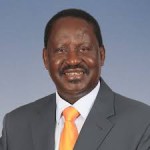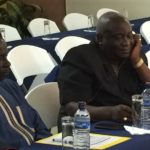
The Sudan government appeared to be siding with Burundi in its clash with the African Union (AU) over the latter’s decision to send a peacekeeping force to quell a growing wave of violence that is widely feared to develop into full blown ethnic killing.
The development follows a meeting between President Pierre Nkurunziza and the Sudanese state minister for foreign affairs Kamal al-Din Ismail, who had sought to get Burundi’s support for Sudan’s candidate in the bid for the Secretariat of the International Conference on Great Lakes Region (ICGLR).
According to the deputy spokesperson at the Burundian presidency Jean Claude Karerwa, Mr al-Din Ismail promised to support the Burundi government against any attempt to impose any decision that could ‘disrupt peace and security’ in the country because, he said, “sending troops in a country itself troop contributor is paradoxical”.
Sudan, whose President Omar Bashir was indicted by the International Criminal Court (ICC) for genocide, war crimes and crimes against humanity, engaged in an almost similar dispute with the United Nations on sending peacekeepers to Darfur but eventually backed down to allow them under certain conditions.
Last week the AU decided to create a 5,000-strong peacekeeping mission that would be deployed to Burundi with a six-month renewable mandate, prompting Burundi to reject the move amid ‘breach of sovereignty’ claims.
The move by the African bloc is unique as it stated that it will send the force even against Burundi’s avowed position, a power that is derived from Article 4 of the AU charter.
Under that article, the AU has the right to intervene in a member state ‘in respect of grave circumstances, namely: war crimes, genocide and crimes against humanity’.
Hundreds of people have been killed since last April when President Nkurunziza decided to run for a third term which he eventually won.







